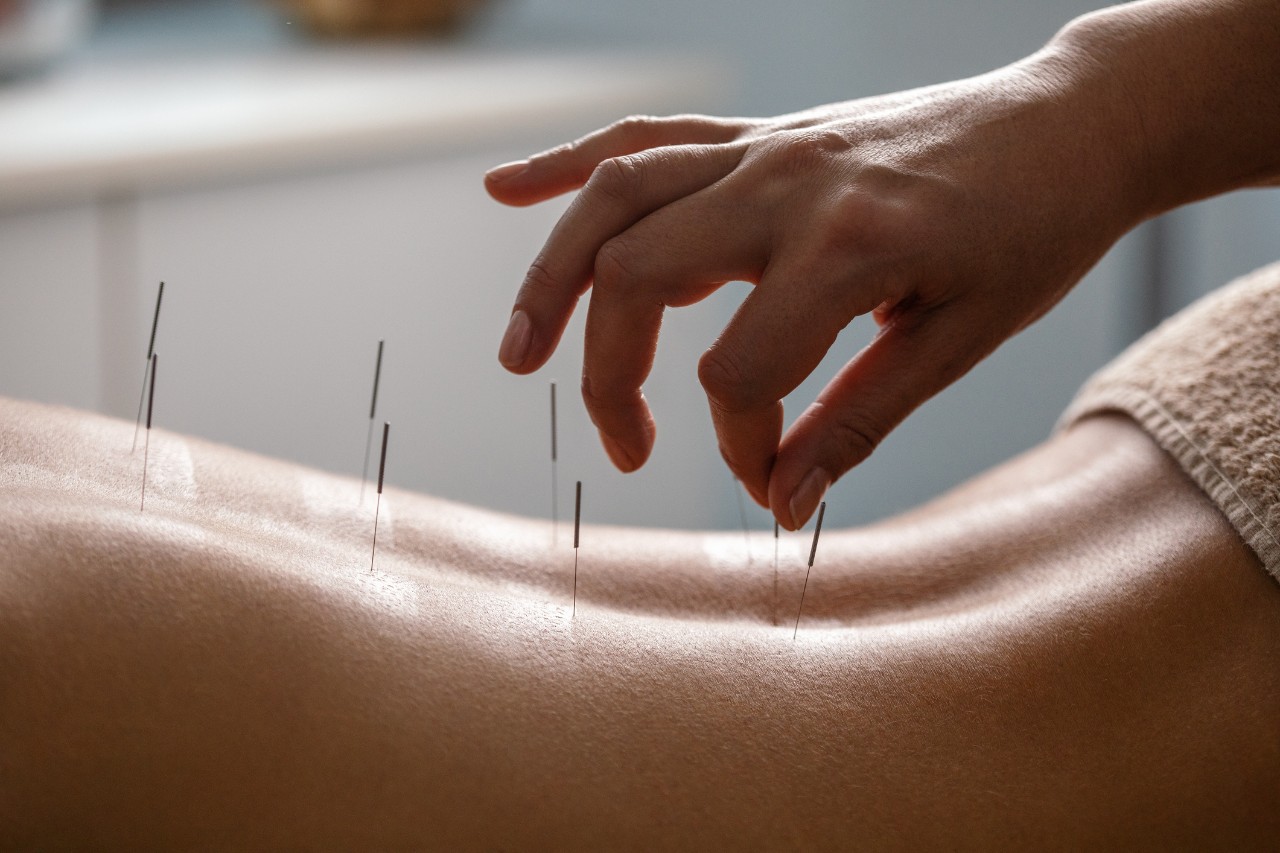
USA Today: Acupuncture is used to treat many conditions. Is weight loss one?
UC expert says acupuncture alone won't help melt pounds away
People attempting to lose weight try a wide variety of methods, from various diets to supplements and exercise programs. But what about acupuncture? Acupuncture is a treatment rooted in Chinese medicine that entails a practitioner inserting fine needles into the skin to induce a therapeutic effect.
USA Today published a story on using acupuncture as a weight loss strategy, interviewing Derek Johnson, MEd, a licensed acupuncturist at the Osther Center for Integrative Health in the UC College of Medicine.
Acupuncture won’t directly cause you to lose weight, according to Johnson. “In my experience and to my knowledge, acupuncture isn’t going to be the magic bullet for weight loss,” he says. However, Johnson explains it can play a very significant role in weight loss through an indirect approach. He says that this is because acupuncture can improve metabolism, reduce cravings and mitigate stressors on the body that affect one’s appetite. He adds that acupuncture can also improve gastrointestinal issues.

Derek Johnson, MEd, of the Osher Center for Integrative Health at the UC College of Medicine/Colleen Kelley/UC Marketing + Brand
Studies suggest that acupuncture may help people lose weight. But, according to Healthline, research is inconclusive because there isn’t certainty on whether a client’s weight loss stems from the acupuncture treatment or their positive attitude that leads them to make healthy choices.
This positive attitude is something that Johnson stresses. “Acupuncture is only so strong,” he says. “It’s not going to make somebody who doesn’t want to do something all of a sudden do it.”
He explains that to see long-term changes in weight loss you need to commit to lifestyle changes. This includes changes in diet and exercise. Your acupuncturist can help you create a holistic treatment strategy that integrates lifestyle changes with acupuncture.
If you're having trouble committing to these lifestyle changes, acupuncture may also help with that. “If it’s one of those people whose kind of on the edge of it, they’re really wanting to, they’re trying but they’re having these roadblocks,” says Johnson, “that is a great candidate [for acupuncture].”
Lead photo/miljko/iStock
Next Lives Here
The University of Cincinnati is classified as a Research 1 institution by the Carnegie Commission and is ranked in the National Science Foundation's Top-35 public research universities. UC's graduate students and faculty investigate problems and innovate solutions with real-world impact. Next Lives Here.
Related Stories
2021 University Recognition Ceremony honors student achievements
April 13, 2021
The University of Cincinnati recognizes students each year who have made significant service, leadership, and academic contributions to the UC community. These students exemplify the spirit of what it means to be a Bearcat.
UC Day of Giving a success
April 28, 2021
University of Cincinnati Day of Giving’s 24-hour challenge was a tremendous success this year, raising $2,219,197 with 3,232 gifts. The fourth annual UC Day of Giving raised its most money to date with alumni, donors, students, faculty and staff joining together to support UC and UC Health.
President picks exceptional talent
April 28, 2021
The University of Cincinnati 2021 Presidential Leadership Medal of Excellence Awards honor six undergraduate scholars for scholarship, leadership, character, service and the ideals of the university. Awardees are spotlighted for exceptional academics, creativity, community service and innovation.
Grad students earn president's highest honor
April 28, 2021
The University of Cincinnati 2021 Presidential Medal of Graduate Student Excellence Awards honor three graduate scholars for scholarship, leadership, character, service and the ideals of the university. Awardees are spotlighted for exceptional academics, creativity, community service and innovation.
GIVEHOPE and BSI Engineering Celebrate Ten Years of Driving Research
August 3, 2021
Years after two personal losses from pancreatic cancer, Cincinnati-based nonprofit GIVEHOPE and consulting firm BSI Engineering are celebrating a philanthropic partnership that has funded 13 pilot research projects at the University of Cincinnati Cancer Center.
Finding community and building a future
July 9, 2021
As a University of Cincinnati College of Medicine student, Sarah Appeadu, MD, ’21, remembers journaling on the “3 Cs” that got her through medical school: Community, community, community. Now, when she lists the people who supported her through four years of training—the last year in a global pandemic—it keeps growing: her family, her church, her classmates, and the college’s Office of Student Affairs and Office of Diversity, Equity and Inclusion. “I look back and it was such a crucial time to really be nurtured in that way,” she says. “I’m so thankful that I had those people. It shows being around the right people really mattered. That’s my same hope for residency even.”
New York Times: Flint Weighs Scope of Harm to Children Caused by Lead in Water
February 1, 2016
Kim Dietrich, a professor of environmental health at UC's College of Medicine, is quoted in this story on the medical problems that could develop among the thousands of young children exposed to lead-contaminated water in Flint, Mich.
Cancer-Causing Gene Found in Plasma May Help Predict Outcomes for Patients
February 18, 2016
Researchers at the University of Cincinnati have discovered that a human cancer-causing gene, called DEK, can be detected in the plasma of head and neck cancer patients.
UC Receives $1.9 Million to Study Pain
February 15, 2016
Jun-Ming Zhang, MD, of the UC College of Medicine, is the principal investigator of a $1.95 million grant to study the interacting roles of the sympathetic and sensory nervous and immune systems in back and neuropathic pain models.
MD Magazine: Generic Drug Equally Effective in Epilespy
February 22, 2016
Michael Privitera, MD, a professor of neurology at UC's College of Medicine and director of the Epilepsy Center at the UC Neuroscience Institute, is featured in this story about research he led that examined the efficacy of generic drug substitution for epilepsy.
